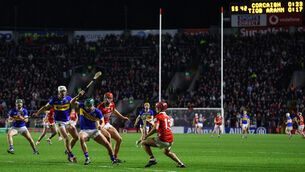Sublime Zlatan has the ability to astonish
He couldn’t have meant it. Hart was out of position. Or: nice goal, shame about the setting. “It’s a very Zlatan thing to do to silence your critics by putting on an outrageous show in a friendly against an experimental English defence,” one commentator wrote.
How do you measure the relative greatness of goals? You lay out criteria, define parameters. Soon you’re looking at a graph with “magnitude of occasion” on the X axis and “difficulty of strike” on the Y, and you’ve arrived at exactly the point where Robin Williams orders his students to start tearing pages out of their English readers in Dead Poets’ Society.











